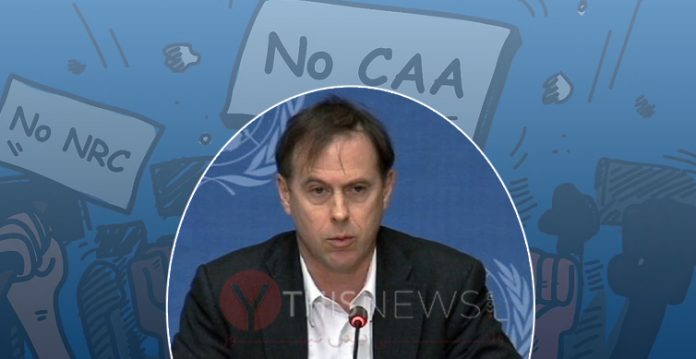Criticizing the treatment of activists and NGOs working in India, the UN had called out three “problematic” laws and urged the Indian government to amend them.
Rupert Colville, the spokesman for the UN High Commissioner for Human Rights, read out a list of activities carried out by India, which were deemed wrong in terms of human rights protection, on behalf of the human rights chief of UN, Michelle Bachelet.
The statement brought to light the arrests of over 1500 people who were involved in the mass protests against the Citizenship Amendment Act (CAA) that took place in the first quarter of 2020.
He mentioned three laws that were not in line with the standards of international human rights.
Mr. Rupert first spoke about the FCRA (Foreign Contribution Regulation Act) calling it “vaguely worded and overbroad in its objective”. He said the act has continued to be harmful on the “right to freedom of association and expression of human rights NGOs”. The FCRA was proposed and transformed into an Act in 2010 but revised in September.
Amnesty International was forced to shut down its office in India in September 2020 after the government froze its bank accounts as it allegedly violated the FCRA for receiving “illegal donations through foreign countries”. However, the association said the cause was the official retaliation from the government as it chose to “expose human rights violations” in India.
As fast as critics work in the country, they were quick to bring to light a report from 2002, which said that RashtriyaSwayamsevakSangh, the parent institution of the ruling party of BJP received over $3 million from a US charity.
The statement of the UN High Commissioner of UN mentioned the possible future outcomes, including administrative and practical difficulties for “advocacy-based NGOs” and activists, if the new amendments made to the act continue.
Mr. Rupert said the new changes give scope to justify a number of otherwise illegal and meddling actions like official raids on NGO offices, freezing of bank accounts, cancellation/suspension of registration of these NGOs and other organizations, which have worked synonymously with the UN human rights bodies.
Secondly, UN High Commissioner spoke about the Citizenship Amendment Act that brought immense criticism and pressure on the activists and human right organizations for protesting in the non-violent, silent rallies.
Thirdly, there was mention of the Unlawful Activities Prevention Act (UAPA) as it does not take into consideration the standard rules put forth by the UN and international agencies for the protection of human rights.
Concluding the statement, Mr. Rupert urged the Indian Government on behalf of the High Commissioner of UN to avoid any future arrests or detainment of people just because of their active participation in the exercise of the human rights bestowed upon them lawfully. He also said that no one be held for carrying out a peaceful assembly as they had the freedom of expression.
Furthermore, the High Commissioner asked the Government of India to look into its FCRA and amend it according to the international human right standards.
Finally, he urged the authorities to release everyone charged under the Unlawful Activities Prevention Act for practicing their basic human rights.
However, the statement of the UN that called out India for its stringent restrictions on the foreign funding for NGOs and suppression of civil society and its rights did not go well with India. It retaliated saying the framing laws were a “sovereign matter” and that it was looking forward for a “more informed view” from the UN.







